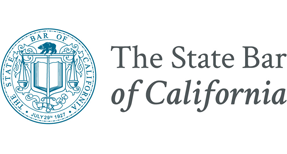A criminal record is a criminal record.
However, the penalties you pay consequentially for a criminal conviction depend largely on how serious the crime is classified in the California Justice System.
In the U.S., the broad classifications of crimes are:
- Felony,
- Misdemeanor, and
- Infraction
These are further broken down into grades of severity. Some crimes, known as “wobblers”, can be charged as either a felony or a misdemeanor criminal offense.
If you are unfortunate enough to be charged and convicted of a felony that could have been charged as a misdemeanor, an experienced criminal defense lawyer may be able to get the conviction reduced. This can minimize the consequences you are facing now and in the future.
So, which felony crimes are eligible for a reduction to a misdemeanor? Which are excluded? How do you go about getting a reduction?
What is Penal Code § 17(b)?
It helps to start by familiarizing yourself with the relevant legislation known as Penal Code § 17(b).
Under this legislation, people convicted of certain felonies may be able to amend their conviction to a misdemeanor.
17(b) PC states the following:
“(b) When a crime is punishable, in the discretion of the court, either by imprisonment in the state prison or imprisonment in a county jail under the provisions of subdivision (h) of Section 1170, or by fine or imprisonment in the county jail, it is a misdemeanor for all purposes under the following circumstances . . . (3) When the court grants probation to a defendant without imposition of sentence and at the time of granting probation, or on application of the defendant or probation officer thereafter, the court declares the offense to be a misdemeanor.”
For a felony to be reduced to a misdemeanor, you will need to file a motion pursuant to Penal Code 17(b). This motion sets forth arguments that may convince the judge to reduce the classification of your offense to a misdemeanor.
When can you bring a Penal Code § 17(b) motion?
Not all felonies can be downgraded to misdemeanors.
The reduction may only apply to offenses known as “wobblers”. This means the original offense could have been charged either as a misdemeanor or a felony. Some examples of such offenses are included below.
Another requirement for filing a Penal Code 17(b) motion is that probation must have been granted. If the offense you were convicted of was a wobbler but the court denied probation and you served time in California State Prison, your felony offense is not eligible for a reduction to a misdemeanor pursuant to Penal Code 17(b).
Even some wobbler felony offenses, where the penalty is served in county jail instead of state prison, become ineligible for reduction to a misdemeanor.
If the requirements for reduction are met, your lawyer can file the motion at any of the following junctures in your case:
- When the preliminary hearing has concluded
- At sentencing
- During your probationary period, or
- When your felony probation is completed
What are the main exceptions?
A straight felony, such as murder or rape, are not eligible for a reduction to a misdemeanor in California. Moreover, even some lower grade felonies are ineligible. These must be charged and sentenced as felonies.
Additionally, any felony for which a person is sentenced to state prison becomes ineligible for a reduction to a misdemeanor under California Penal Code 17(b).
The serious consequences of a felony conviction in California
A felony conviction carries significantly greater consequences than a misdemeanor in California.
In addition to an initial sentence of the county jail, state prison, and/or a fine of up to $10,000, a felony conviction may severely impact your future.
This is especially the case when seeking employment. You may be excluded from working in certain professions that require state licensing should you have a felony conviction on your record. Moreover, your right to own a firearm will also be affected.
Of course, any criminal record can impact background checks from employers, landlords, and others. It can also affect your future education choices as well as your freedom of travel and immigration status.
How does it help to reduce a conviction to a misdemeanor?
There are many reasons to file a Penal Code 17(b) motion. If you are successful and your felony offense is reduced to a misdemeanor, the following benefits can all make your punishment less onerous:
The misdemeanor may become eligible for expungement or dismissal under California Penal Code 1203.4 or 1203.4a
In the case of expungement, most employers, landlords, etc. will not have visibility of your criminal conviction
You will be able to truthfully say on applications that you have never been convicted of a felony
- Restrictions to obtaining certain professional licenses may be reduced
- Your California gun rights may be restored
- Your voting rights will not be impacted
- Your right to serve on a jury will be restored
Which felonies can be reduced to misdemeanors in California?
So, what are “wobblers”?
There is a long list of criminal offenses that can be charged as either a felony or misdemeanor, including commercial and corporation offenses.
Following are some common penal code offenses that, if charged as a felony, may be eligible for a reduction to a misdemeanor:
- Burglary
- Grand theft
- Assault with a deadly weapon
- Criminal threats
- Spousal battery
- Vandalism
- Many types of sex crimes
- Forgery
- Most cases of fraud
Some states use a classification system for misdemeanors and felonies such as levels or classes. However, California does not.
Instead, each crime is judged according to how serious and violent it was and whether it was a related sex-crime. Each carries its own penalty according to the sentencing guidelines the judge may refer to.
“Wobblers” are the only felonies that can be reduced to misdemeanors.
How will the court make a decision on my Penal Code 17(b) motion?
After filing a Penal Code 17(b) motion, the relevant court will consider your case for reducing that felony to a misdemeanor.
Generally speaking, the court will consider the following factors:
- The precise nature of your offense
- The seriousness of the crime
- The facts of your case
- Whether you successfully completed all the terms and conditions of probation
- Your current criminal history
- Your personal background and reason for the request for the request
Your case will be aided by the presence of a lawyer experienced in preparing, filing, and arguing such motions with the courts.
Prosecutors may resist the move for the reduction and the judge, who can exert considerable discretion in the matter, may be influenced by the input from either side of the argument.
Do the penalties carry over when a felony is reduced?
If you are successful in reducing a felony to a misdemeanor, most of the direct consequences of your offense will be mitigated.
The lesser charges will be recognized by the state “for all purposes” but there are some exceptions. Certain penalties may be carried over and continue to affect you.
For instance, California follows the “Three Strikes Law”. “Strike” offenses like serious or violent felonies could remain as a “strike” on your record which will result in enhanced punishments should you offend again in the future.
If your offense was a sex-related crime and you are required to register as a sex offender pursuant to California Penal Code Section 290 PC, the registration requirement would remain even if your charge is reduced to a misdemeanor.
Finally, some crimes (like misdemeanor crimes of domestic violence) may still be considered as felonies by the federal government and state professional licensing agencies which may continue to exclude you from owning firearms or pursuing certain careers.
Should I seek expungement as well as a reduction?
If your offense is reduced from a felony to a misdemeanor, you may be eligible for an expungement.
An expungement has considerable benefits for your future. Employers and landlords will not see your criminal conviction during background checks as a result of a successful expungement motion.
An expungement does not happen automatically with a felony reduction to a misdemeanor. An experienced lawyer will need to file an expungement motion under California Penal Code Section 1203.4 PC in addition to a motion pursuant to California Penal Code Section 17(b).
What are the chances of getting my felony charges reduced?
The only way to know if you have a good chance of getting a felony reduction is to speak to a lawyer with experience in such cases.
If you are eligible for a felony reduction, The Law Offices of Bryan R. Kazarian will put together a strong case for reducing your felony charge to a misdemeanor.
As a former Deputy District Attorney and a well-respected criminal defense attorney, Bryan R. Kazarian has years of experience in assessing such cases and representing those accused of felonies in and around Orange County.
Get a “second chance” with a felony conviction
The first step is for The Law Offices of Bryan R. Kazarian to evaluate your case during a consultation.
Whether you are currently serving felony probation and seeking early termination or have already completed your probation, we can assess whether you are eligible for a “second chance” with your felony case.
Remember, even years after serving your sentence, there may still be significant benefits from reducing a felony conviction to a misdemeanor.
Our experience is unmatched with regard to reducing felonies to misdemeanors pursuant to Penal Code Section 17(b). Contact us today for your consultation and case evaluation.








